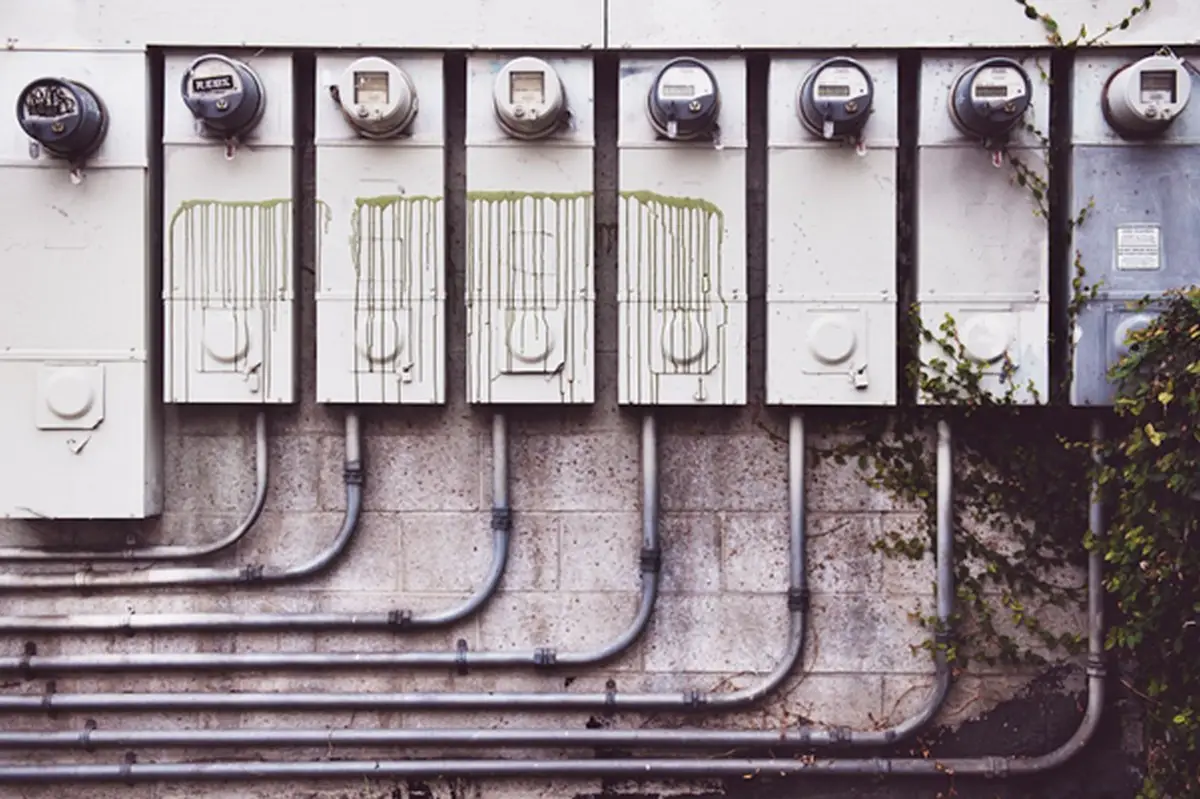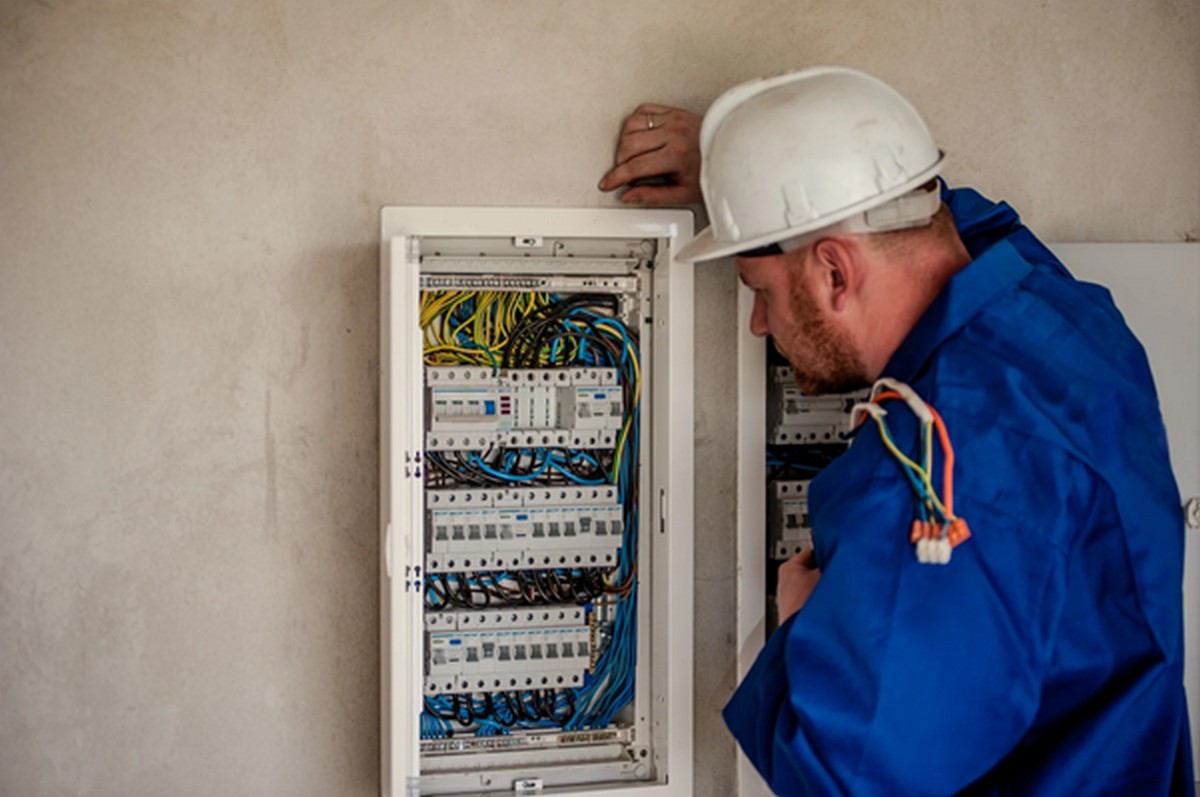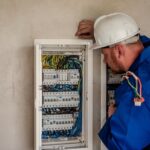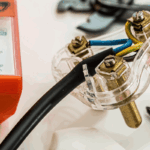Innovative home electrical trends for electricians, Understanding the basics of electrical systems
Understanding the Basics of Electrical Systems
18 March 2024
Electrical systems form the backbone of modern infrastructure, powering homes, businesses, and virtually every device we rely on daily. At its core, an electrical system is a network of components that generate, distribute, and utilize electricity.
Understanding the basics of these systems is not only crucial for those pursuing a career in electrical engineering but also for individuals looking to grasp how electricity fuels our modern lifestyle. This introductory section aims to lay down the foundational knowledge required to comprehend the complexities of electrical systems, from the generation of electricity to its distribution and efficient use.
Generation of Electricity
Electricity generation is the first critical step in the electrical system. It primarily occurs in power plants using various energy sources, including fossil fuels, nuclear power, and renewable resources like wind, solar, and hydroelectric power.
The choice of energy source significantly impacts the environment and the sustainability of the power generation process. In these plants, mechanical energy is converted into electrical energy, which is then ready to be transmitted to homes, businesses, and other end-users. Understanding the principles of electricity generation is essential for recognizing the broader implications of our energy choices on the environment and economy.
Transmission and Distribution
Once electricity is generated, it must be transmitted over long distances from the power plants to the end-users through a complex network known as the transmission and distribution system. This system includes substations, transformers, and miles of transmission lines.
The electricity often travels at a high voltage to minimize energy loss during transmission. Upon reaching its destination, the voltage is reduced using transformers to make it safe for home and business use. This stage is crucial for ensuring the reliable and efficient delivery of electricity to consumers, highlighting the importance of maintaining and upgrading electrical infrastructure to meet growing demand and prevent outages.
Switchgear in Electrical Systems
Switchgear is an integral component of electrical systems, designed for both the protection and control of electrical power operations. It encompasses a variety of electrical disconnect switches, fuses, or circuit breakers used to control, protect, and isolate electrical equipment. The development of efficient switchgear solutions is essential for enhancing the safety and reliability of electrical systems, ensuring that energy distribution is both secure and optimized for performance.
The primary function of switchgear is to ensure the stability of the power system by clearing faults downstream and to enable manual or automatic shutdown of systems to allow for work on the electrical network. Housed in high-voltage substations, these devices play a critical role in controlling and protecting the distribution of electrical power throughout homes, businesses, and industrial plants. The selection and maintenance of switchgear are vital for the safety, efficiency, and longevity of electrical systems, making it a key area of focus for professionals in the field.
Understanding Damage in Electrical Systems
Damage within electrical systems can significantly impact their efficiency, safety, and reliability. Common causes of damage include physical wear and tear, environmental factors, and electrical faults like short circuits or overload conditions. These damages can lead to unexpected power outages, reduce the lifespan of electrical equipment, and, in severe cases, cause accidents or fires. Regular maintenance and inspection are essential to identify potential issues early and mitigate the risk of damage. Additionally, employing advanced diagnostics and using quality materials can help prevent damage and ensure the continuous and safe operation of electrical systems.
Energy Efficiency in Electrical Systems
Energy efficiency is a crucial aspect of electrical systems aiming to reduce energy consumption while delivering the same level of electrical service. This not only has a positive impact on the environment by decreasing carbon emissions but also lowers energy costs for consumers and businesses.
Techniques such as using energy-efficient appliances, improving insulation in buildings, and utilizing smart grid technology can significantly enhance the efficiency of electrical systems. Utilizing power analyzers can also help monitor and optimize energy usage, ensuring that electrical systems operate at peak efficiency while minimizing waste and unnecessary energy loss. Governments and organizations worldwide are increasingly focusing on energy efficiency policies and incentives to promote sustainable electric power usage.
Renewable Energy Integration
The integration of renewable energy sources like wind, solar, and hydro into electrical systems is vital for creating a sustainable and environmentally friendly energy landscape. Transitioning to renewables helps reduce dependence on fossil fuels, decreases greenhouse gas emissions, and contributes to energy security. However, integrating these intermittent energy sources into the electrical grid presents challenges, including storage and management of renewable energy. Advanced technologies such as battery storage systems and grid modernization are essential for facilitating the large-scale adoption of renewable energy.
Smart Grids and Technological Advancements
Smart grids represent a significant technological advancement in electrical systems, incorporating digital technology to monitor and manage the transport of electricity from all generation sources to meet the varying electricity demands of end-users. Smart grids improve the efficiency, reliability, and sustainability of electricity distribution. They allow for better integration of renewable energy sources, offer real-time information on power usage, and enhance the ability to detect and respond to faults in the system more effectively. The ongoing development of smart grid technology is critical for future-proofing global energy systems.
Electrical Safety and Regulations
Maintaining high standards of safety is paramount in electrical systems to protect users and infrastructure from electrical hazards. This involves strict adherence to electrical codes and regulations that govern the design, installation, and maintenance of electrical systems. These regulations are continuously updated to incorporate new technologies and knowledge. Professionals in the field must stay informed about these changes to ensure safety and compliance. Furthermore, public education on electrical safety, including the risks of outdated wiring and the importance of proper handling of electrical devices, is crucial in preventing accidents and enhancing overall safety.
The realm of electrical systems is vast and encompasses a multitude of components and processes critical for powering our modern world. From the generation of electricity using diverse energy sources to the intricate workings of transmission and distribution networks and the pivotal role of switchgear in safeguarding and regulating these systems, each element plays a fundamental role in ensuring a steady and reliable supply of power.
The emphasis on damage prevention, energy efficiency, and the integration of renewable resources highlights the ongoing evolution towards more sustainable and resilient electrical infrastructures. Meanwhile, the advancements in smart grid technologies and the stringent adherence to safety and regulations underscore the industry’s commitment to innovation, safety, and environmental stewardship. Understanding these components and their interconnections is crucial for anyone looking to contribute to, or simply comprehend, the electrical engineering field and its impact on our daily lives and the future of global energy consumption.
Comments on this guide to Understanding the Basics of Electrical Systems article are welcome.
Electrical
Electrical / Electronics Posts
Wires are important with electrical equipment
7 ways how electricians can help you build a perfect house
3 awesome things a smart plug can do
Building
Residential Architecture Articles
Comments / photos for the Understanding the Basics of Electrical Systems page welcome.






